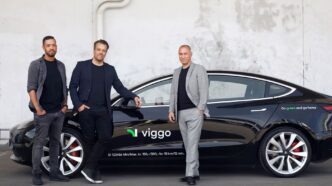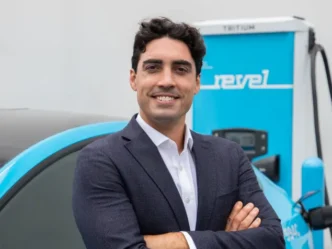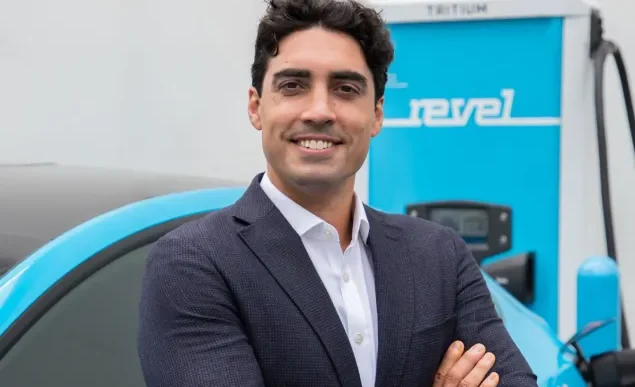Estonia’s leading mobility platform, Bolt, has officially made its first acquisition — snapping up Danish electric taxi startup Viggo. The strategic move, announced on March 24, 2025, marks Bolt’s entry into Denmark’s taxi sector, setting the stage for further growth in tightly regulated European markets. As the company gears up for a potential IPO in 2026, this acquisition signals Bolt’s ambitious expansion strategy.
Founded in 2013 by Markus Villig, Bolt started as a modest project built from a €5,000 family loan. Villig personally recruited drivers on Tallinn’s streets while testing his prototype app. Fast forward to today, Bolt operates in over 50 countries and 600 cities, offering services from ride-hailing to e-scooter and e-bike rentals. Its global user base now exceeds 200 million.
The company’s rapid growth is backed by impressive funding rounds totaling $2 billion. In 2024, Bolt secured an additional €220 million in debt financing from major banks, including Barclays, Goldman Sachs, and Deutsche Bank. Despite facing an EBIT loss of €94.2 million that year, Bolt reported €1.7 billion in revenue—a 37% jump from the previous year. Ride-hailing remains its core revenue driver, accounting for 82%, while rentals and delivery contribute around 9% each.
Why Bolt Targeted Viggo for Its First Acquisition
Founded in 2019, Viggo carved out a niche as Denmark’s leading electric taxi service, operating over 300 high-end EVs. The startup, backed by Norway’s Link Capital and Canadian investors, raised €3.27 million in March 2025. Viggo projected €47 million in 2024 revenue, reflecting 25% annual growth, driven by a unique blend of ride-hailing and proprietary EV charging hubs through its ViggoEnergy network.
What made Viggo stand out? Its fully electric fleet, premium service quality, and commitment to sustainability attracted 450,000 loyal users across Copenhagen and Aarhus. With more than 500 professional drivers, Viggo consistently outperformed competitors in customer satisfaction — earning a stellar 4.9/5 app rating.
For Bolt, acquiring Viggo unlocks immediate access to Denmark’s competitive market while aligning with its green mobility vision. Although financial details remain undisclosed, industry estimates suggest a 2-3x revenue multiple, similar to Lime’s acquisition of Dott in 2024.
“This isn’t just market entry — we’re acquiring the top player in Denmark,” said Lars Speekenbrink, Bolt’s Northern Europe GM. “Viggo’s premium service and fully electric fleet perfectly align with our expansion strategy.”
Bolt’s Expansion Playbook: Setting the Stage for 2026 IPO
Until now, Bolt avoided acquisitions, choosing instead to grow organically. But that changed with Viggo. The Danish startup’s market leadership and innovation finally met Bolt’s strict M&A standards.
Bolt’s expansion plan goes beyond just one acquisition. Alongside Viggo, the company partnered with Taxi 4×27, adding another 600 vehicles to its platform. This dual strategy instantly strengthens Bolt’s foothold, combining premium EV services with traditional taxi fleets.
With Uber returning to Denmark in 2025 via Taxi 4×27, competition is heating up. Bolt’s edge lies in its lower driver commissions—10% to 15% cheaper than Uber’s—and its integrated multi-service platform.
For Viggo users and drivers, Bolt promises business as usual — preserving the premium experience, all-electric rides, and top-rated service. The acquisition also offers a data-driven edge, as Bolt plans to optimize charger placements and route efficiency using Viggo’s operational insights.
How Viggo Reshaped Denmark’s Taxi Sector
Denmark’s mobility landscape has seen significant shifts. Regulatory challenges forced Uber out in 2017, only for it to re-enter Copenhagen in 2025 via a local partner. In contrast, Viggo thrived by balancing innovation with compliance.
Operating as a licensed kørselskontor (ride-hailing office), Viggo set itself apart with clear pricing, an all-electric Tesla-heavy fleet, and a CO₂ tracker that cut emissions by over 1,800 metric tons annually. Its success was no accident — Viggo earned praise for offering “the closest thing to Uber” in Denmark, according to users.
By absorbing Viggo, Bolt strengthens its position in Europe’s regulated markets and accelerates its shift toward sustainable, multi-modal transportation. The real challenge ahead? Retaining Viggo’s impressive 92% driver retention rate during tech integration — a hurdle, given Bolt’s 25% driver churn in Poland last year.
If successful, Bolt could replicate this model in other tightly regulated markets, with Oslo and Amsterdam likely next on the list.
As Bolt eyes its 2026 IPO, this acquisition reflects a bigger ambition — becoming Europe’s leading multi-modal mobility powerhouse.













